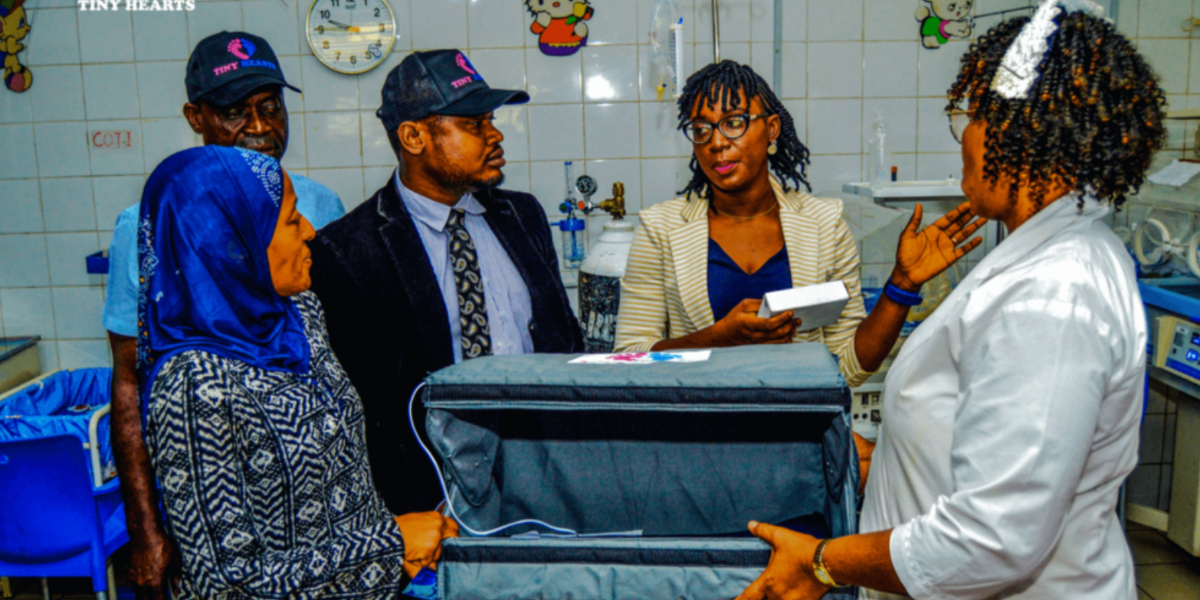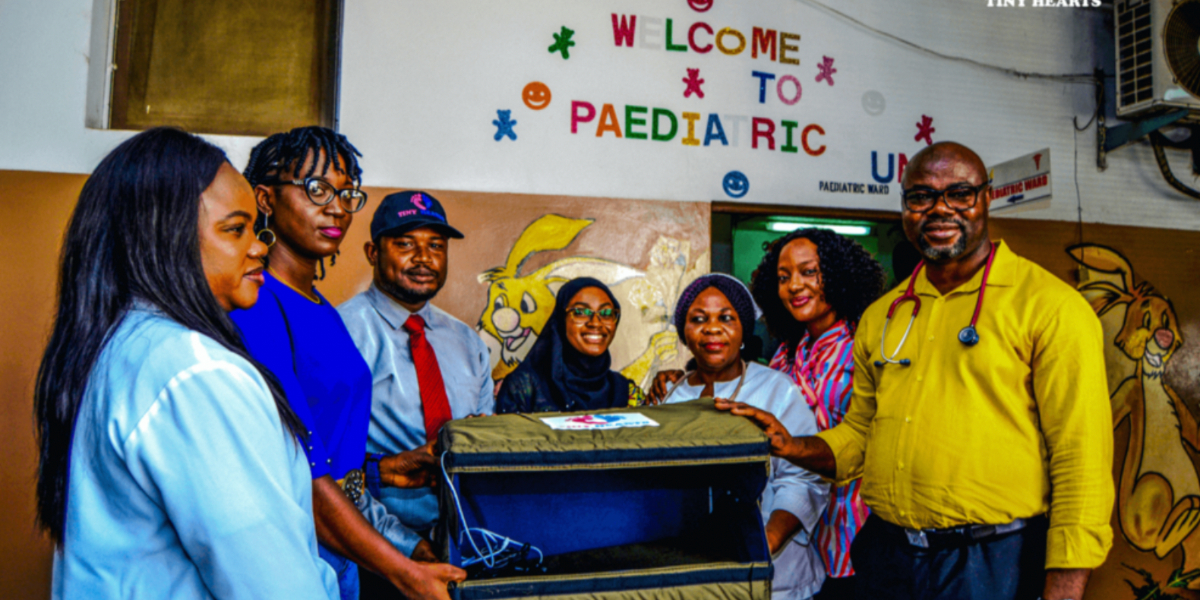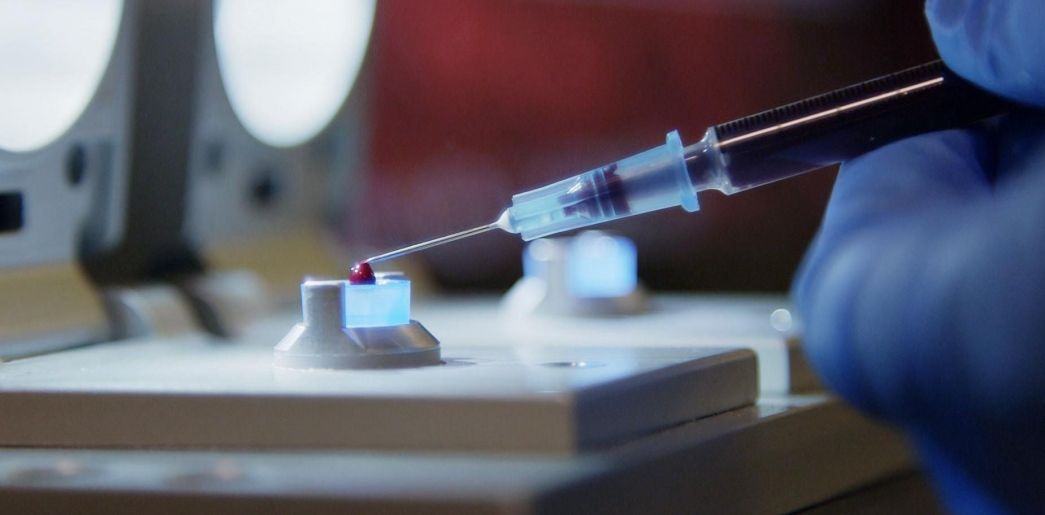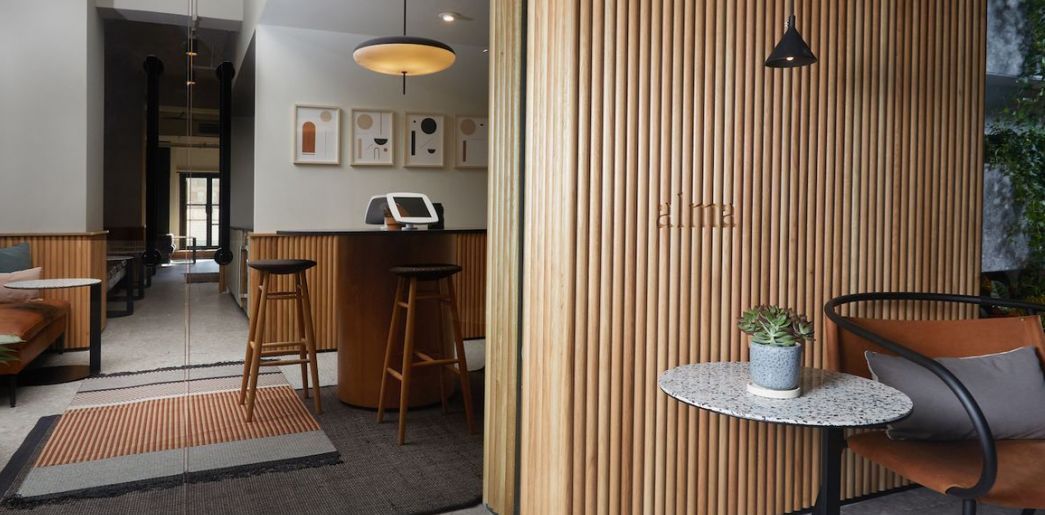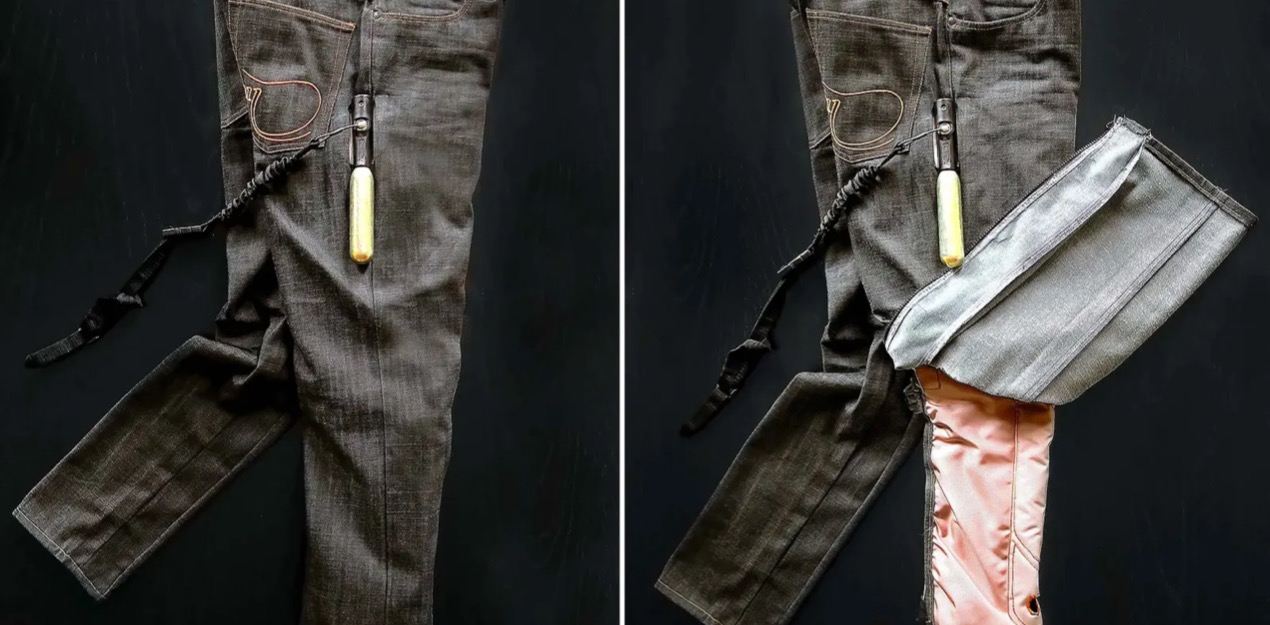AWARD YEAR
2023
CATEGORY
Body
GOALS
No Poverty, Good Health & Well-being
KEYWORDS
jaundice, solar power, newborn care
COUNTRY
Nigeria
DESIGNED BY
Virtue Oboro, Tiny Hearts
WEBSITE
https://nigeriahealthwatch.com/crib-aglow-saving-tiny-hearts-in-the-fct-through-technology/
Crib A'Glow
a simple solar-powered phototherapy system that can be easily moved to locations where it is needed.
How does it work?
Powered by the sun, the unit solves the problem of unreliable power supply. It also improves ease of access as the equipment can be easily disassembled and moved from one location to another where it is needed urgently.
Why is it needed?
Data from the WHO’s Global Health Observatory shows that in 2017, newborn deaths accounted for 47% of deaths among children under five, and in 2016, 1 million children died as a result of complications arising from premature births. While jaundice occurs in about 50% of babies reaching full term, it occurs in 80% of preterm babies. A paediatric specialist at the Asokoro District Hospital in the FCT estimates that 8 out of every 10 premature births in their unit have the condition. Jaundice is usually caused by an excessive build-up of bilirubin, a substance made when the body routinely breaks down red blood cells. However, a newborn’s still-developing liver often cannot remove bilirubin quickly enough, causing an excess. Another predisposing factor is Rhesus (Rh) incompatibility between a mother and her baby. If the bilirubin isn’t broken down quickly enough, it can lead to death or severe disability.
How does it improve life?
Crib A'Glow improves life as it is a low-cost phototherapy solution that are common way of treating newborns who suffers from severe jaundice. The unique thing about the Crib A'Glow is that it will still function even in times of power outage as it is fully solar-powered.
As a social enterprise, the company is sustained by selling and hiring out the Crib A’Glow phototherapy units. A unit sells for N150,000 and can be rented at the rate of N3000 for 24 hours. Tiny Hearts Technologies also produces disposable phototherapy blindfolds, conducts training programs and recently launched a sensitisation initiative called Yellow Alert to help raise awareness about neonatal jaundice among pregnant women.
